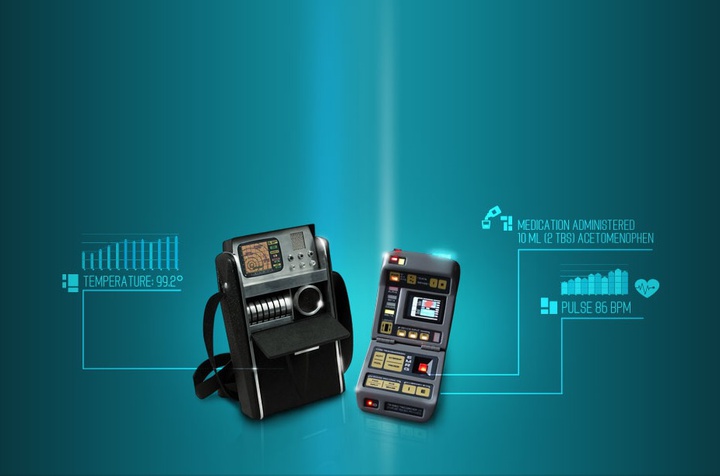
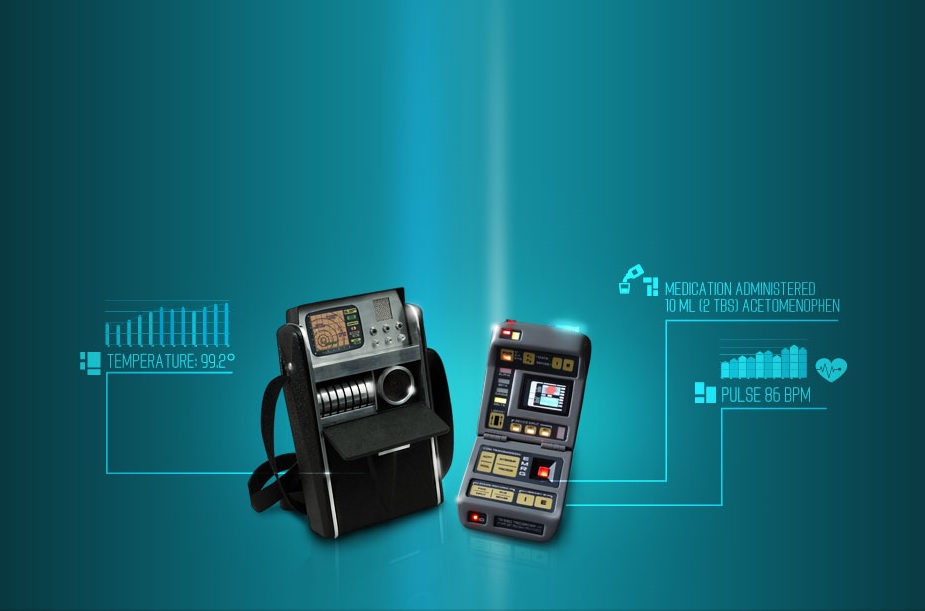
Background
Medical technology has advanced by leaps in bounds in the past few decades. From magnetic resonance imaging and lab-on-a-chip technology, from bioprinting to stem cell research, and from bionic prosthetics to molecular biology, there scarcely seems to be any field that has been left untouched by this staggering rate of progress.
However, when it comes to diagnostic medicine, things seem very much stuck in the past. Oftentimes, a diagnosis will either consist of a doctor asking some basic questions and checking vitals with simple tools like a stethoscope, thermometer or tongue depressor. Other, more serious ailments, require patients to undergo expensive and often invasive scans, and the waiting lists for these procedures can be rather long.
What is the Qualcomm Tricorder XPRIZE?
In this age of high-tech medicine, it seems that the most basic task of finding out “what ails ya” is where innovation is needed the most. Hence the Qualcomm Tricorder XPRIZE, a $10 million incentive competition spearheaded by the X Prize and Qualcomm foundations with the goal of creating a handheld medical device that can allow consumers to make their own reliable health diagnoses anywhere, anytime.
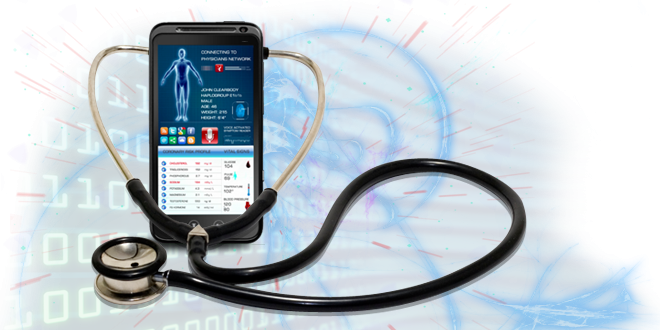
The prize takes its name from the medical device popularized by the Star Trek franchise. This prize was first announced by the X Prize Foundation in May of 2011, and subsequently launched at the Consumer Electronics Show (CES) in January of 2012. As envisioned for this competition, the device will be a portable tool capable of measuring the five key health metrics - blood pressure, respiration, heart rate, temperature, and blood oxygenation - and diagnosing 16 health conditions.
These will consist of 13 required core conditions and a choice of three elective ones. In the former category, the conditions include Anemia, Atrial Fibrillation (AFib), Chronic Obstructive Pulmonary Disease (COPD), Diabetes, Hepatitis A, Leukocytosis, Pneumonia, Otitis Media, Sleep Apnea, Stroke, Tuberculosis, Urinary Tract Infection, and Absence of condition. For elective health conditions, teams will have a choice between airborne allergens, cholesterol screening, food-borne illnesses, HIV screening, hypertension, hypo/hyperthyroidism, melanoma, mononucleosis, osteoporosis, whooping cough, shingles or strep throat.
Progress on the Prize So Far
The current finalists includes teams from the US, the UK, Canada, India, Taiwan, and Slovenia. Amongst them are such shortlisted applicants as Scanadu, the Silicon Valley-based startup that is currently working out of NASA's Ames Research Park in San Jose, California to produce the Scout handheld medical device. This small device comes equipped with multiple sensors, located on the top, bottom and front, which allow a person to measure their vitals by pressing it between their thumb and forefinger, or taking their temperature by holding it to their forehead.
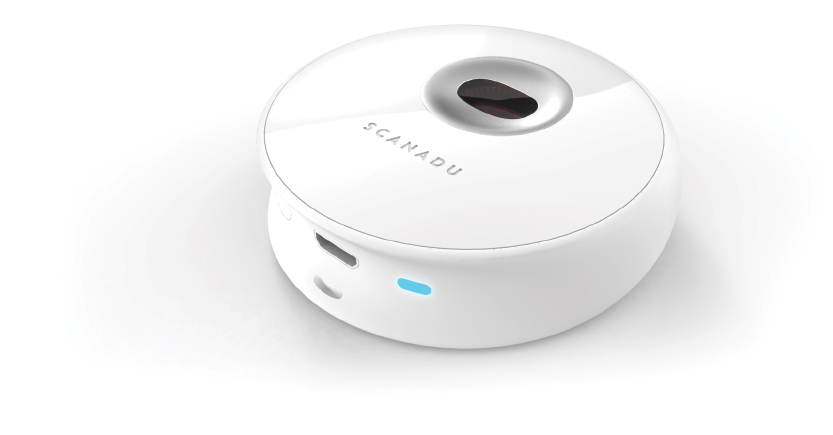
Then there's Aezon, the American team comprised of student engineers from Johns Hopkins University, Maryland. Unlike the other teams, their entry is a three-tiered system that consists of a wearable "Vitals Monitoring Unit" that measures patients' vital signs, the Lab Box - a portable device that makes use of microfluidic chip technology in order to diagnose diseases - and a proprietary smartphone app that sends the results via the cloud to the Aezon web application to be analyzed.
Team DMI of Massachusets is led by Dr. Eugene Y. Chan of the DNA Medicine Institute and is partnered with NASA, the National Institutes of Health (NIH) and the Bill and Melinda Gates Foundation to develop medical technology and promoting health care solutions for developing nations. Their entry is the rHealth X1, a handheld device that analyzes blood samples and provides the results, via bluetooth, to the user's smartphone.
And there's MESI Simplifying Diagnostics, the Slovenian startup that distinguished itself in recent years by developing an innovative ankle-brachial index measuring device (ABPI MD), a wearable health band that fits around the ankle. Having since moved into home diagnostic medicine, they have developed the HealthStation HOME for the competition - a package consisting of a wristband, smartphone app, shield and in-depth modules that gather vitals and send the information to the user's smartphone for objective analysis.
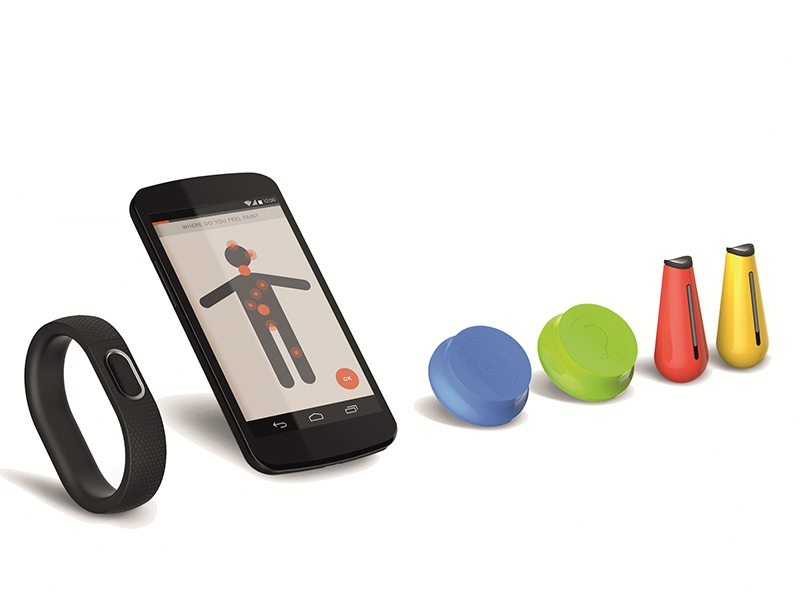
The most recent round of tests took place this past November and December, where the ten finalists were selected. Between this past August and March of 2015, these teams will be taking part in the "design and build" phase, where they will finalize the construction of their prototypes. These will be put through a diagnostic competition involving 15-30 patients shortly thereafter, with the judges evaluating the consumer user experience and assessing the scanners' adequacy in high-frequency data logging. The overall winners are expected to be announced in early 2016.
Continuing to Advance Medicine with Technology
Regardless of who takes home the prize, this competition is just one small aspect of a much larger trend. In an age of wireless communications and digital technology, medicine has the opportunity to become increasingly personalized and data-intensive. And the timing could not be more fortuitous, thanks to a demographic shift where a significant portion of the population is aging at the same time that medical budgets are dwindling.
As a result, a future where medicine is personal, handheld, remotely monitored, and analyzed through machine-learning and even artificial intelligence is a very likely possibility. And be sure to check out this promotional video for the competition, courtesy of the Qualcomm Tricorder XPrize site:
Sources:
- tricorder.xprize.org/about/overview
- tricorder.xprize.org/teams
- www.gizmag.com/qualcomm-star-trek-tricorder-challenge/33610/
- www.bbc.com/news/technology-28950201
- www.wired.com/2014/11/device-diagnoses-hundreds-diseases-using-single-drop-blood/
- www.cnet.com/news/finalists-selected-for-10-million-dollar-qualcomm-tricorder-xprize/
- nuviun.com/content/news/qualcomm-tricorder-xprize-10-finalists-announced
- www.dnamedinstitute.com/uncategorized/team-dmi-selected-as-finalist-in-qualcomm-tricorder-xprize/
- spectrum.ieee.org/tech-talk/biomedical/diagnostics/xprize-announces-finalists-building-nextgen-medical-sensors
Image Credits:
- Title image: tricorder.xprize.org
- Device Image: nuviun.com
- Scanadu Scout: Scanadu
- MESI: mesimedical.com
